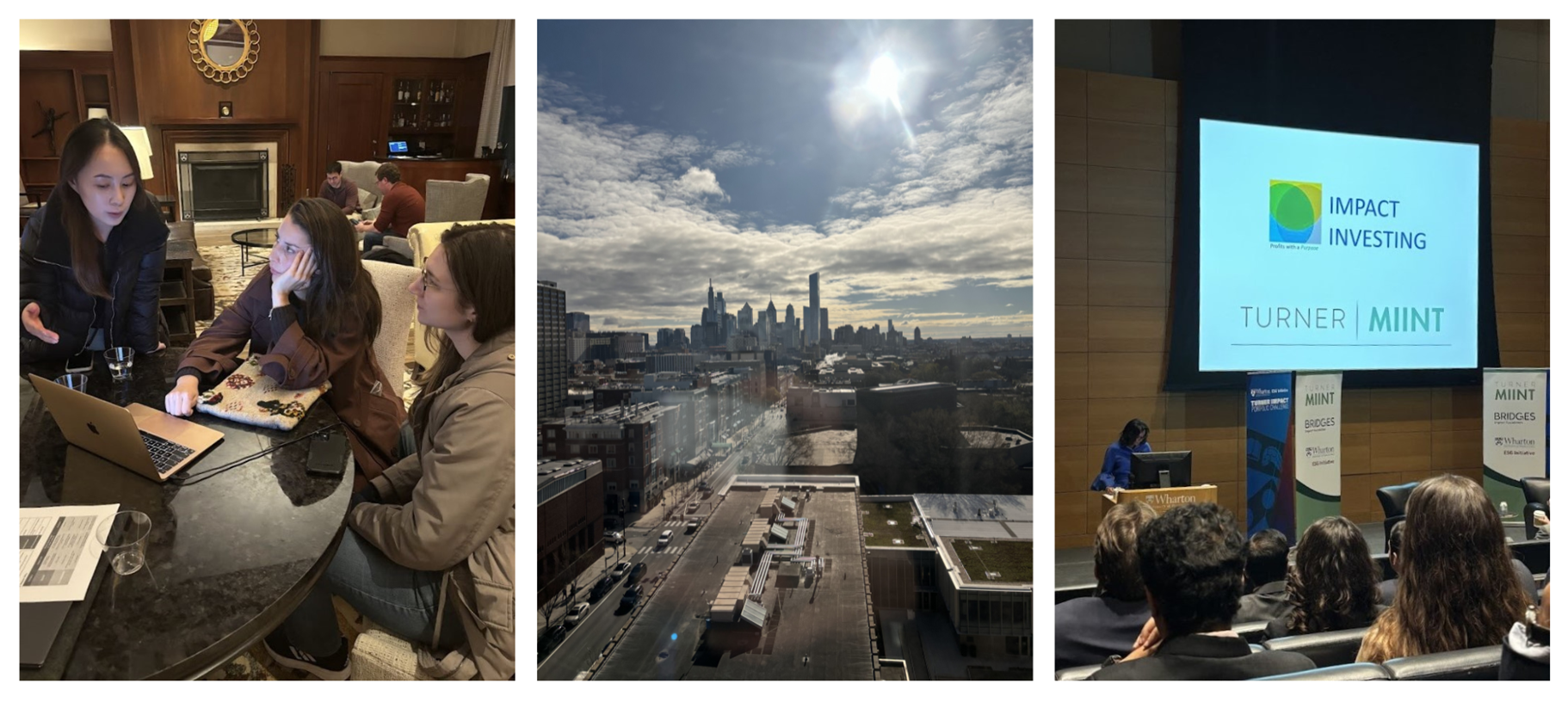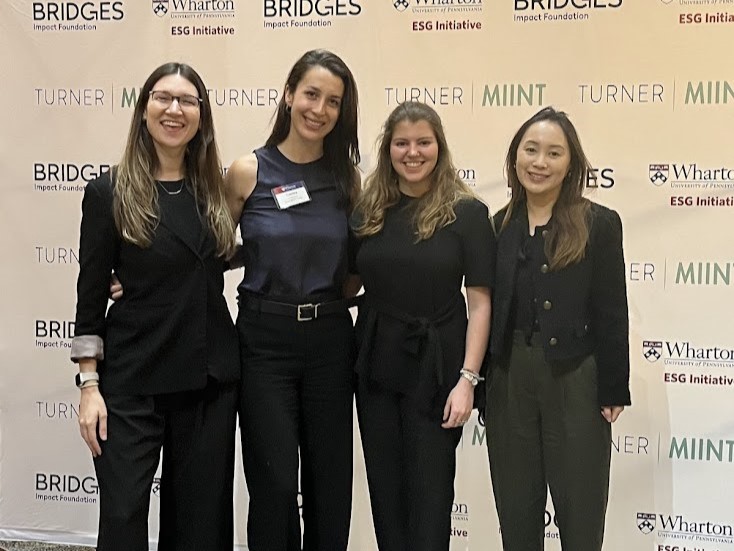 Andrea Carvajal (MPA Y1), Cristina Serra-Santamarina (MPP), Rose Martersteck (MPP), Charles De-Belen (MPP), and Lu Tian (MPA Y1).
Andrea Carvajal (MPA Y1), Cristina Serra-Santamarina (MPP), Rose Martersteck (MPP), Charles De-Belen (MPP), and Lu Tian (MPA Y1).
Can you tell us more about the MIINT competition and what the presentation process involved?
The MIINT (MBA Investment Impact Network and Training) competition is an impact investing competition for graduate students, organised by the ESG initiative of the Wharton School with the support of the Bridges Foundation (a renowned institution in impact investing field). The competition allows participants to get hands-on experience in early-stage impact investment by sourcing startups, conducting due diligence, building the pitch deck, and finally pitching the investment to a panel of judges.
What start-up company did you select and why?
We pitched Ocean Oasis, a seed-stage climate tech startup from Norway. It provides clean, scalable, energy and cost-efficient solutions to ocean desalination.
We choose Ocean Oasis as it aligned with our investment mission to empower female-led companies to tackle the climate crisis with innovative technologies. We sought to invest in companies that are 1) female founded or co-founded 2) first movers with innovative cleantech solutions and 3) currently operating in or expanding to developing regions given that they are disproportionately impacted by climate change.
How did you use your different expertise to work as a team and what skills did you use to convince the Investment Committee to invest?
We are a diverse team, in terms of both our professional backgrounds and nationalities, with two MPA (Master of Public Administration) and three MPP (Master of Public Policy) members. In each stage of the competition, we assigned ourselves the leads to deliverables and all actively contributed to each deliverable. For the final pitch deck, we had our team member with financial background to work on modelling, and the member with law expertise to work on the deal terms.
For the final presentation to the judges, we created a cohesive narrative of impact and returns for the company. Each part of our presentation, such as business model, market strategies, and financials, serves as a key component to an integrated system of impact.

What do you think were the main benefits of taking part?
- Practical Learning: The MIINT provides a real-world scenario for us to enhance our understanding of impact investing and build up our analytical skills by engaging in the investment process, involving sourcing, diligence, and modelling, as well as the final presentation to the investment committee. Going through this process by ourselves really helps us understand what impact investment professionals do in their daily work.
- Mentorship and Guidance: We gained invaluable guidance from the meetings with our mentors, including Professor Stephan Chambers from the Marshall Institute, Manuel Antunes (VC investor and practitioner in-residence at the Marshall Institute), Elena Iannaccone (MPA alumni and current impact investment professional at IFC (International Finance Corporation)) throughout the competition process. As we went through each stage of the competition, they provided feedback, shared industry insights, and helped us refine our strategies and presentations.
- Networking Opportunities: Engaging with our mentors, founders, organisers, and fellow participants connected us to a broader impact investing community across Europe and North America. In a nascent field like impact investing, those connections allow us to navigate the industry and explore future career opportunities in impact.
What advice would you give to anyone who is considering taking part in future?
- Always do your homework first – be prepared for the meetings with mentors and founders
- Build trust with and learn from your team mates
- Be proactive
- MIINT goes by super quickly - make sure to pace yourself / plan ahead to take advantage of each stage and the resources available both at Wharton and LSE

Find out more about MIINT here.